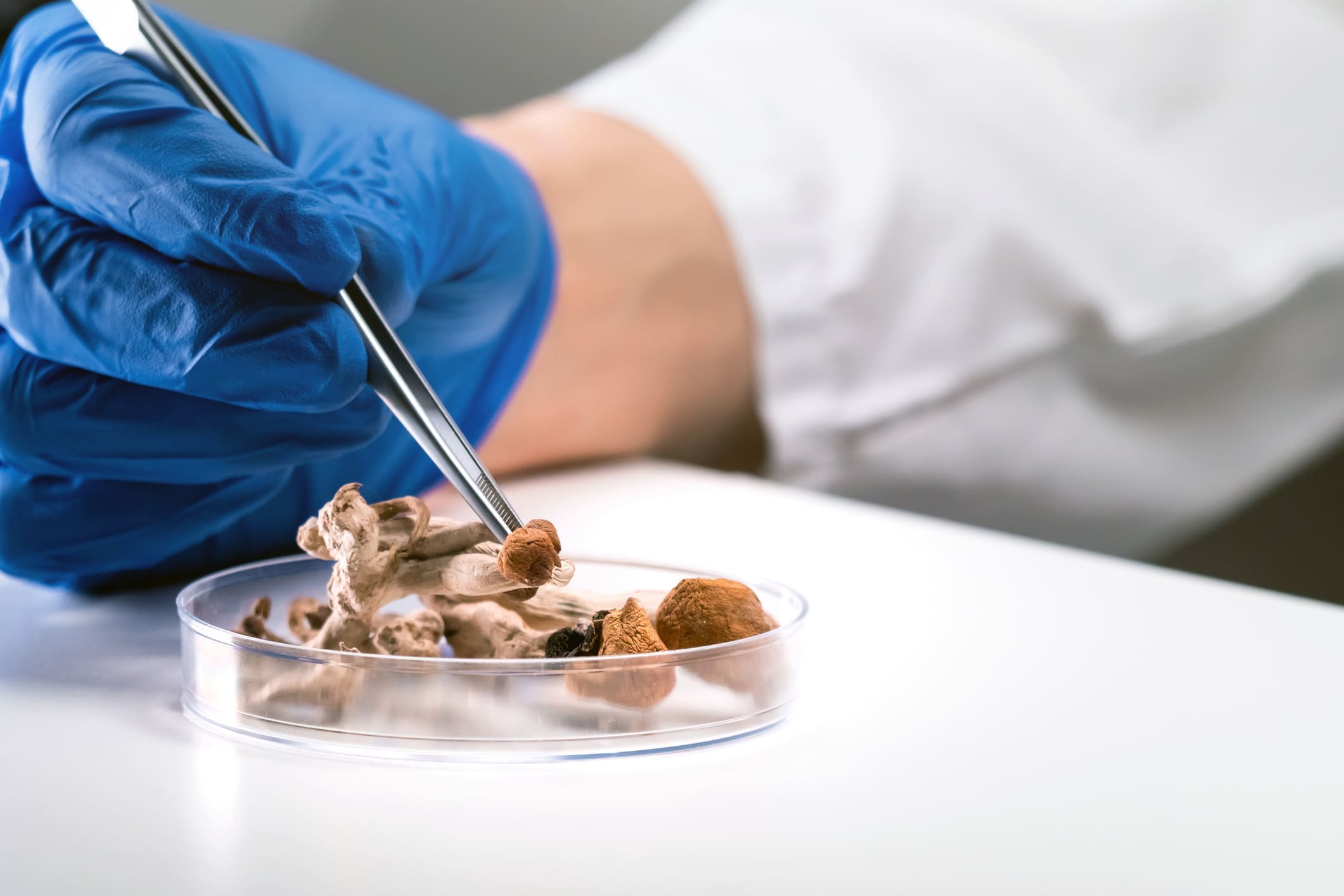Psilocybin Treatment for Major Depressive Disorder (MDD) is a topic of interest for some of the many people struggling with debilitating symptoms of Depression. While not currently approved for the treatment of Depression, psilocybin has generated discussion as a possibility for the future. Guy M. Goodwin, et al., recently conducted a phase 2 trial with 233 participants to evaluate the effectiveness and safety of a proprietary synthetic psilocybin as a treatment for treatment-resistant Depression (TRD). The results of this study are discussed below, along with a comparison of psilocybin and more established treatments.
Recent Psilocybin News
A June 2023 FDA publication provides guidance for research on the clinical potential of psychedelic drugs, specifically noted to include psilocybin. This guidance discusses the requirements for conducting this research as well as safety considerations specific to these substances. In publishing this guidance, the FDA acknowledged the popular discourse around psychedelics for mental health treatment and the need for care in structuring these clinical studies.
The Single-Dose Psilocybin Treatment for Major Depressive Disorder Study
The Goodwin study randomly assigned participants to receive one dose of either 25 mg, 10 mg, or 1 mg of synthetic psilocybin and studied them over a period of 12 weeks. The participants all had treatment-resistant Depression, and were evaluated using the Montgomery–Åsberg Depression Rating Scale (MADRS).
Goodwin, et al. summarized their results as follows, “a 25-mg dose but not a 10-mg dose resulted in a significantly greater reduction (improvement) in MADRS total scores than a 1-mg dose at 3 weeks in participants with treatment-resistant Depression but was associated with adverse events. Secondary end-point results generally supported the primary analysis with the exception of a 12-week sustained response, at which time point the observed numerical difference was not considered to be statistically significant.” The authors then recommended that future research be of longer duration and study a larger sample size.
Concerning Adverse Events
In addition to common adverse effects such as headache, nausea, dizziness, and fatigue, a significant number of study participants in the 25 mg and 10 mg groups reported suicidal ideation: 14% of the 25-mg group, 17% of the 10-mg group, and 9% of the 1-mg group experienced “worsening of suicidal state from baseline to week 3.” This occurred in spite of “the exclusion of persons judged to be at a clinically significant risk for suicide.”
Criticism of Psilocybin Research
A recent editorial in the New England Journal of Medicine by Bertha K. Madras, Ph.D. cites the Goodwin single-dose psilocybin treatment study, calling it, “both intriguing and sobering.” A positive aspect that it notes is that the 25mg dose group experienced an improvement in their symptoms. However, the editorial points out that this was at a lower rate when compared with conventional antidepressants for MDD and even lower when compared to studies of the effectiveness of antidepressants for TRD.
Further, Madras notes the incidence of adverse events in 72% to 84% of participants in the study, depending on the treatment group, and specifically took note of the self-harm-related events. Additionally, the editorial expresses concern about potential regulatory issues surrounding psilocybin as a legitimate medical treatment.
Why TMS and Spravato Are Still Better Options for Most Patients
While research on the effectiveness of Psilocybin treatment for Major Depressive Disorder is an ongoing topic of discussion within the scientific community, psychedelics such as psilocybin have not yet been adequately proven to be effective and safe, with known potential to cause unpleasant or dangerous effects. By contrast, transcranial magnetic stimulation (TMS) and Spravato (Esketamine) have an established body of research demonstrating their effectiveness, tolerability, and safety. Serious adverse effects are rare with TMS and Spravato. In addition, TMS and Spravato are easier and more efficient to deliver than psilocybin. Because it lasts so long and can cause serious negative effects, Psilocybin usually requires a session of 6 to 8 hours of close observation by two treatment professionals. By contrast, a typical TMS course involves sessions that are provided by just one professional, and the sessions are usually done in less than 4 minutes. Unlike with Psilocybin, the acute effects of Spravato are reliably pleasant and consistently brief, allowing the sessions to be completed in just two hours and with less intense monitoring.
Reach out to Mid City TMS for Major Depressive Disorder Treatment
If you are struggling with Major Depressive Disorder, Mid City TMS can help. Our team will help design the right treatment plan for your needs, including FDA-approved and highly effective treatment options such as TMS and Spravato. Contact us today to learn how you can achieve relief from your symptoms and get back to fully living your life.



